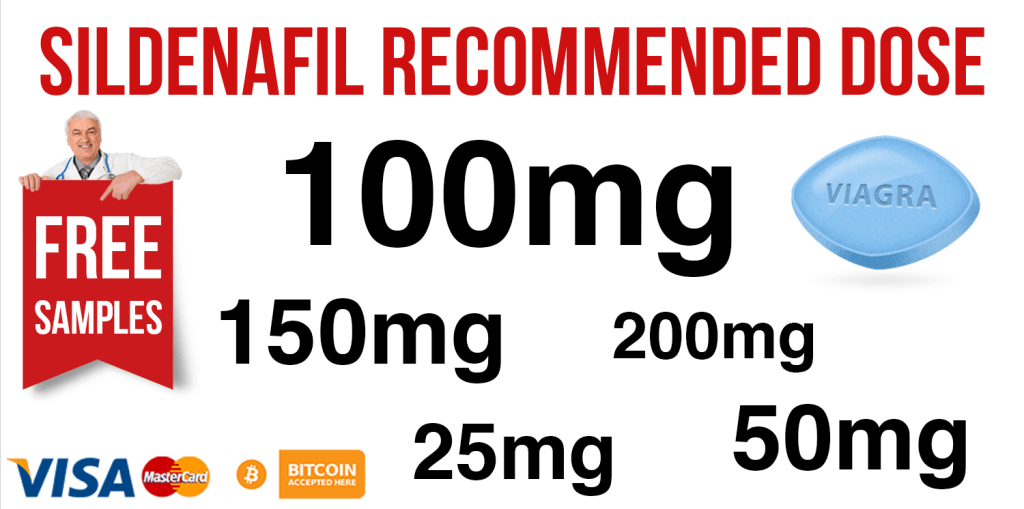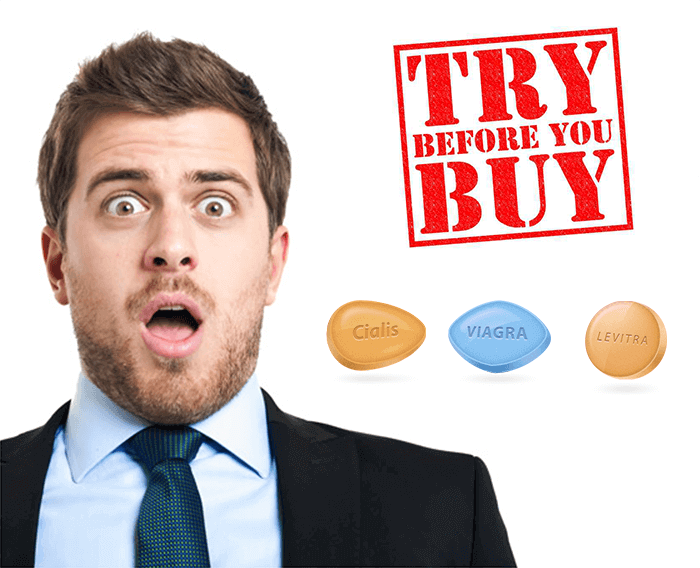Sildenafil Recommended Dose, Side Effects, Interactions
The Sildenafil recommended dose for most men is 100 mg. If this does not prove sufficient, you may wish to increase the dose up to 200mg.
The Sildenafil recommended dose for most men is 100 mg. Here’s what you need to know about the drug and your Sildenafil recommended dose.
We offer only the highest quality Viagra Online, Cialis Online and Levitra Online that can be ordered from a reputable online pharmacy. If you’re not sure that you want to buy generic Viagra online, we offer you to try our Sample Pack of Erectile Tabs. All you have to pay is shipping costs and you will receive Sample Pack of Erectile Dysfunction Tablets.
The Sildenafil recommended dose for any given person is influenced by variables including how old they are, their metabolic rate and their medical status.
Sildenafil Drug Information
Sildenafil is a shortened term that is used to describe a drug named Sildenafil Citrate. This is the most popular erectile dysfunction drug in the world. It is sold under brand names including Viagra, Revatio and Kamagra.
For the sake of clarity, Viagra, Revatio and Kamagra are all Sildenafil Citrate and they are all chemically identical. They have the same components, the same structure and the same chemical formula (C22H30N6O4S).
Sildenafil was first discovered by scientists working for Pfizer, a pharmaceutical company, in the UK in 1993. It was discovered in the course of research for a drug to treat high blood pressure. Although Phase I trials found that Sildenafil was not suited to treating hypertension, Pfizer also discovered that it could provide a very powerful treatment for erectile dysfunction.
Sildenafil was patented by Pfizer in 1996. It received approval from the Food and Drug Administration to be sold for the treatment of ED in the US in 1998. It has been sold in the US under the brand name ‘Viagra’ ever since.
Since Sildenafil received FDA approval, a number of additional ED drugs have been developed. Some of the best-known alternatives to Sildenafil (Viagra) are Cialis and Levitra.
All of the ED drugs that have received approval from the FDA have the same mechanism of action. They are known as PDE5 inhibitors.
PDE5 inhibitors support increased blood flow in the penis. A substance named cyclic Guanosine Monophosphate (cGMP) prompts muscles in the penis to relax, which causes blood vessels to dilate and increases the rate of blood flow. However, cGMP is broken down by Phosphodiesterase type 5 (PDE5), which can prevent the formation of erections. PDE5 inhibitors make it easier to form and maintain erections by temporarily preventing the breakdown of cGMP.
One common misconception about Sildenafil and other PDE5 inhibitors is the belief that they can cause sexual arousal. This is not the case. As above, Sildenafil and other PDE5 inhibitors work by facilitating blood flow. They do not cause sexual arousal, which is in part a psychological state. PDE5 inhibitors can only help you to obtain an erection if you are already experiencing sexual arousal. Nevertheless, the vast majority of men who take Sildenafil experience good results.
Although Sildenafil was the first ED medication to be approved by the FDA, it remains the most effective ED drug on the market. Sildenafil works for about 82-84% of men who suffer from ED, compared to 80% for Levitra and 81% for Cialis.
Sildenafil Dosage Instructions
Sildenafil should be ingested at least 30 minutes prior to intimacy. Its effects last for about 4 hours. For best results, you should ingest your Sildenafil recommended dose with water, so as to ensure that it reaches your stomach.
Even if you take care not to exceed your Sildenafil recommended dose, the drug should not be taken more than once in a 24 hour period.
Sildenafil should never be taken if you have recently consumed grapefruit or grapefruit juice. This is because grapefruits interfere with the uptake of the drug, and can cause Sildenafil to be absorbed in dangerously high concentrations.
Eating while taking Sildenafil does not normally cause any adverse reaction. However, you should know that Sildenafil may need longer to take effect if you eat, or have recently eaten, a meal that is high in fat.
Sildenafil recommended dose
The Sildenafil recommended dose for most men is 100 mg. If this does not prove sufficient, you may wish to increase the dose up to 200mg.
Men over 65 years old or men with medical conditions that affect the kidneys, liver or cardiac health should take a smaller dose of Sildenafil (25 mg or 50 mg).
The maximum recommended dosing of Sildenafil
The highest Sildenafil recommended dose is 200 mg. This is a high dosage, so if Sildenafil can work for you, a dosage of 200 mg will probably make that clear. Your intake of Sildenafil should never exceed 200 mg in a 24 hour period.
Medical professionals advise a Sildenafil recommended dose for first-time users that is well below the maximum possible dose.You do not know how well your body will respond before you take Sildenafil. Furthermore, you may also experience side effects. For this reason, it is best to take a lower dose of Sildenafil to start with (100 mg for most people) and increase this if you feel it is necessary.
If Sildenafil does not work for you, you have many other options to treat erectile dysfunction. For example, Levitra and Cialis both work for around 80% of people who take them.
Taking the maximum dosage of Sildenafil is not recommended for men over 65 or men who have any medical conditions associated with low blood pressure, the heart or the kidneys.
Interaction with Other Drugs
In most cases, men taking nitrates or nitrites should not take Sildenafil. This is because the interaction between Sildenafil and these drugs can cause a dangerous drop in blood pressure, Nitrates (such as Nitroglycerin) are often prescribed for the relief of chest pain. You should be aware that nitrites are present in recreational drugs known as ‘poppers’.
Alpha blockers (such as Hytrin or Flomax) can have dangerous interactions with Sildenafil, causing large drops in blood pressure.
If you are on alpha blockers, nitrates or nitrites, you should never take Sildenafil without consulting your doctor.
Sildenafil should not be taken in conjunction with other ED drugs. Wait at least 24 hours after taking one ED drug to use another.
Below is an additional list of drugs that can have negative interactions with Sildenafil:
Antifungal medications including fluconazole and itraconazole, HIV/AIDS medications such as Norvir and Agenerase, antibiotics such erythromicin and clarithromycin, Hepatitis C medications such as Boceprevir and St John’s Wort.
People taking any of these drugs would be well advised to work with their doctor before moving forward with Sildenafil.
Common Sildenafil Side Effects
Most users experience little or no side effects from Sildenafil, particularly if they take the appropriate Sildenafil recommended dose. Yet every medication has side effects for some users, and Sildenafil is no exception. Thankfully the vast majority of Sildenafil side effects are very limited. As a matter of fact, many men who experience minor side effects of Sildenafil choose to take the drug anyway, because the trade-off makes sense for them.
Adverse Reactions Reported by Patients Treated with Sildenafil Citrate
| REACTION | 25 mg | 50 mg | 100 mg | Placebo |
| Headache | 16% | 21% | 28% | 7% |
| Flushing | 10% | 19% | 18% | 2% |
| Dyspepsia | 3% | 9% | 17% | 2% |
| Abnormal vision | 1% | 2% | 11% | 1% |
| Nasal congestion | 4% | 4% | 9% | 2% |
| Back pain | 3% | 4% | 4% | 2% |
| Myalgia | 2% | 2% | 4% | 1% |
| Nausea | 2% | 3% | 3% | 1% |
| Dizziness | 3% | 4% | 3% | 2% |
| Rash | 1% | 2% | 3% | 1% |
Some of the more common side effects of Sildenafil include headaches, facial redness/flushing, stomach upsets and nausea.
Less Common Sildenafil Side Effects
The less common side effects of Sildenafil include blurred vision, seeing with a blue tint, difficulty telling blue and green colors apart, memory problems, hearing loss, fainting or allergic reactions to the drug.
If you experience any of these more serious side effects, you should contact your doctor immediately and stop taking Sildenafil.
Sildenafil and Alcohol
While it is completely understandable to want to mix Sildenafil with alcohol, doing so can have significant negative consequences. If you do drink alcohol at the same time as you take Sildenafil, you should have no more than one or two glasses of wine or beer.
One important reason to minimize simultaneous consumption of alcohol and Sildenafil is that alcohol undermines Sildenafil’s effectiveness.
As detailed above, Sildenafil and other PDE5 inhibitors work by making it easier for blood to flow into the penis. Erections are made possible partly by blood vessels in the base of the penis closing, which keeps more blood in the penis and makes it grow hard.
Many people think of alcohol as a substance that increases sexual desire. This might be true in the sense that it decreases inhibition, bringing sexual desire to the surface. However, alcohol also makes it more difficult for men to perform. This is because it has the effect of dilating blood vessels. Since alcohol can prevent blood vessels in the penis from closing, it can also prevent erections from being formed. In order to enjoy Sildenafil at its most effective, alcohol consumption should be minimized.
A second reason to keep alcohol consumption as low as possible when taking Sildenafil is that it can be dangerous to your health. Alcohol and Sildenafil both decrease blood pressure. The combination of these drugs can prove dangerous, particularly for people who have low blood pressure in the first place.

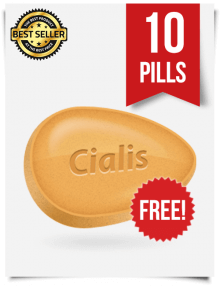 Trial Free Cialis 20 mg 10 Samples
Trial Free Cialis 20 mg 10 Samples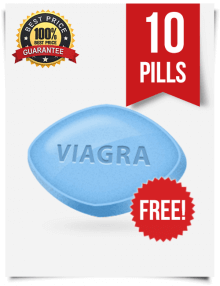 Samples of Viagra 100 mg 10 Pills for Free
Samples of Viagra 100 mg 10 Pills for Free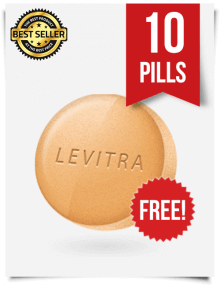 Free Levitra Trial Pack 10 x 20mg
Free Levitra Trial Pack 10 x 20mg